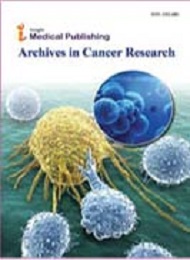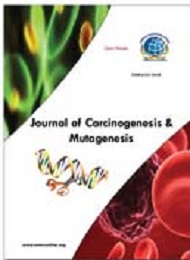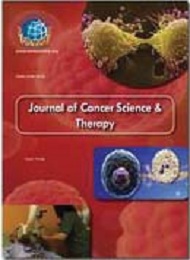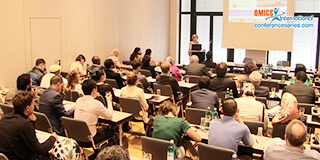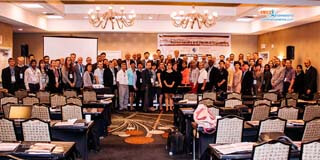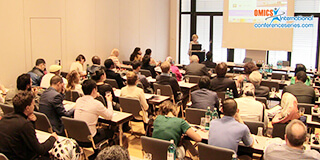Theme: Theme: Pioneering Enriching the Lives and Wellness of Women’s in Breast Cancer
Breast Cancer 2022
We welcome each and every one from every part of the world to travel to the insanity gathering at 12th World Congress on Breast Cancer held during March 14-15, 2022 at London, UK with a theme “Pioneering Enriching the Lives and Wellness of Women's in Breast Cancer”.
Breast Cancer 2022 Conference aims to bring together the Professors, Researchers, scientists, business giants and technocrats to provide an international forum for the dissemination of original research results, new ideas and practical development and discover advances in health practice, management and education in relation to health disparities as well as a breadth of other topics.
Importance & Scope:
Breast Cancer 2022 deals with Breast cancer knowledge and characteristics, Screening, Detecting and Diagnosing Breast Cancer, Breast cancer therapy, prevention and medicine, Surgery Choices for Breast Cancer, Personalized Medicine, Clinical trials of Breast Cancer, Male Breast Cancer and Breast cancer Nursing. Breast cancer is the main type of cancer from which most of the women are suffering worldwide. Awareness about the breast cancer risks, symptoms and treatment is very important. Introduction of new techniques in the field of medicine as well as diagnosis is going on worldwide. Breast Cancer Conference 2021 provide a platform for sharing of information about the breast cancer treatment techniques and newly developed techniques for the same as well as provide platform about the recent researches on breast cancer. This event includes prompt keynote presentations, oral talks, poster presentations and exhibitions.
Why to Attend???
It will provide exposure about the detailed information of Breast Cancer. It will also provide insight to the novel inventions and techniques. It is very beneficial for the students, physicians, nurses, doctors, health care people, professors because it provides knowledge in the field. It also gives opportunities to the Breast Cancer Societies in Germany to showcase their knowledge and have face to face meetings with scientists increasing their business opportunities. It also gives opportunity to know their market competitors.
Benefits:
Accepted abstracts will be published in Journal of Nursing and Healthcare and provided with DOI Global networking: In transferring and exchanging Ideas. A Unique Opportunity for Advertisers and Sponsors at this International event.
Target Audience:
Leading world Doctors, Directors, Deans, Professors, Associate Professors, Registered Nurses, Research Fellows, Instructors and many more from leading universities, companies and medical research institutions, hospitals sharing their novel researches in the arena of Nursing, Healthcare & Medicine.
Track 1: Breast Cancer Staging
Breast cancer staging describes how much cancer is in the body which is treated with chemotherapy, hormone therapy, and drugs. It has both medical and pathologic staging systems for breast cancer. The pathologic stage also called the medical stage is determined by examining tissue removed during an operation. If surgery is not conceivable, sometimes right away cancer will be given a clinical stage instead. Imaging tests like x-rays, CT scans, MRIs, ultrasound, and PET scans may also give information about how much and where cancer is in the body.
Related Conferences: Breast Cancer Conferences | Breast Cancer Meetings | Breast Cancer Events
Track 2: Radiology
Radiologists are medical doctors that specialize in diagnosing and treating injuries and diseases using medical imaging procedures such as X-rays, computed tomography (CT), The nurses is involved in the care of patients before and after imaging or procedures, including administration of medications, monitoring of vital signs and monitoring of sedated patients magnetic resonance imaging (MRI), nuclear medicine, positron emission tomography (PET) and ultrasound.
Related Conferences: Breast Cancer Conferences | Breast Cancer Meetings | Breast Cancer Events
Track 3: Breast Cancer Awareness
Breast cancer advocacy and awareness efforts are a type of advocacy. Breast cancer consciousness is an effort to raise awareness and reduce the stigma of breast cancer through education on symptoms and treatment whereas breast cancer advocates raise funds for more patient empowerment, better care, more knowledge, and by conducting educational campaigns or providing free or low-cost services. Breast cancer culture, at times called pink ribbon culture, the outgrowth of breast cancer advocacy, is the social movement that supports the larger women's health movement, socially aware, pro-woman individuals, businesses and governments to signal their support for women, health, and mainstream medicine. The environmental breast cancer drive suspects pollution as a substantial cause, possibly from pesticides, plastics, and industrial runoff in groundwater.
Related Conferences: Breast Cancer Conferences | Breast Cancer Meetings | Breast Cancer Events
Track 4: Breast Cancer Detection, Prevention and Diagnosis
Early detection is always better and can be done through screening methods. If family history is there for breast cancer, then one should go for the advice of a doctor. Screening methods are medical breast examination (doctors or nurses examine women's breasts for lumps), mammography, and other imaging techniques. If the lump is there in the breast it can be breast cancer. X-rays are taken to closely observe the breast cancer which is known as a mammogram. After lump detection or other sign mammogram is used.
Related Conferences: Breast Cancer Conferences | Breast Cancer Meetings | Breast Cancer Events
Track 5: Breast Cancer Surgery
Most of the women suffering from breast cancer have to face breast surgery as a part of treatment. Different ins and outs are there due to which breast surgery is done: to remove cancer cells consist of breast-conserving surgery and mastectomy, to find whether cancer is spreading or spread already including a biopsy or axillary lymph node dissection, after removal of cancer for resorting the shape of the breast that is breast reconstruction. Surgery side effects are there.
Related Conferences: Breast Cancer Conferences | Breast Cancer Meetings | Breast Cancer Events
Track 6: Male Breast Cancer Research
Men are having a small amount of breast tissue, during puberty in girls tissue grow and develops but in men, it doesn’t. As breast tissue is there in men additionally, they can also get breast cancer like in women. Most of the men are not aware of this and the treatment of breast cancer males is mostly delayed as compared to females because of unawareness. So many things are there that raise breast cancer in men like if any female in the family or close relative is having cancer, radiation exposure to the chest, Klinefelter's syndrome, etc. Symptoms of breast cancer are the same in men like women. Awareness should be there so that we can save our lives.
Related Conferences: Breast Cancer Conferences | Breast Cancer Meetings | Breast Cancer Events
Track 7: Breast Cancer And Cell Biology
Cancer cells are very complex cells and it is challenging for clinicians to manage breast cancer therapy. Tumor cells are having different phenotypes and deregulated apoptotic and these characteristics are responsible for improper therapeutic response. For multidrug resistance events major role is played by membrane transporters, they are the cell’s first line of contact with anticancer drugs. So cell structure and biological properties of the cell leads to drug-resistant and lead to a decrease in the intracellular activity of drugs. Breast growth is regulated by the interaction between hormones and growth factors. Genetic changes in growth factor can lead to abnormalities. The immune system of host play a substantial role during breast cancer, breast cancer is a complex disease.
Related Conferences: Breast Cancer Conferences | Breast Cancer Meetings | Breast Cancer Events
Track 8: Breast Cancer And Immunology
Immunotherapy improves the aftereffect of clinical treatment in breast cancer patients. Targeted treatment is the approach used to directly target tumor cells, side effects of immunotherapy can be decreased.
Related Conferences: Breast Cancer Conferences | Breast Cancer Meetings | Breast Cancer Events
Track 9: Breast Cancer Nursing
Nurses play an important role during the treatment of breast cancer because they can help the patient to build physically and mentally. They can educate patients about risk factors, ways to reduce them. Nurses involved in breast cancer care have an impact on the early discovery of breast cancer, treatment, and they serve as advocates for women with the disease.
Related Conferences: Breast Cancer Conferences | Breast Cancer Meetings | Breast Cancer Events
Track 10: Breast Cancer Management
Breast cancer management takes different approaches that depend on the physical and biological characteristics of the disease, age, overall health and personal preferences of the patient. There are 2 types of treatment classified into local therapy (surgery and radiotherapy) and systemic treatment (chemo-, endocrine, and targeted therapies). The mainstay of breast cancer management is surgery for the local and regional tumor, followed by a combination of chemotherapy, radiotherapy, endocrine therapy, and targeted therapy. Radiation treatment includes utilizing high-vitality X-rays or Gamma rays that target a tumor or post-surgery tumor site. Cryoablation trial treatments accessible for women with small or early-stage breast cancer.
Related Conferences: Breast Cancer Conferences | Breast Cancer Meetings | Breast Cancer Events
Track 11: Epidemiology Of Breast Cancer And Risk Factors
Breast cancer incidence rates increase sharply with age, becoming substantial before the age of 50 years. Major risk factors that occur are during the premenopausal years, the rate of increase in incidence is common around the world, approximately 8%-9% per year, breastfeeding each child for less than 6 months, and physical inactivity, are each linked to an estimated 3% of female breast cancer cases. Some other factors include oral contraceptives; hormone replacement therapy, ionizing radiation, and diethylstilboestrol use in pregnancy are causes of breast cancer and lifestyle factors including overweight and obesity, alcohol and certain occupational exposures.
Related Conferences: Breast Cancer Conferences | Breast Cancer Meetings | Breast Cancer Events
Track 12: Inflammatory Breast Cancer
One of the most aggressive types of breast cancer occurring in women of any age is inflammatory breast cancer. The typical presentation is rapid swelling, sometimes associated with skin changes, persistent itching rapid increase in breast size, redness and nipple retraction. It is often regarded as systemic cancer. Breast cancer is diagnosed by a biopsy where it confirms as malignancy Ultrasound is useful for looking at some breast changes, such as lumps or changes in women with dense breast tissue especially those that can be felt but not seen on a mammogram that are best breast cancer screening tests. All Inflammatory breast cancers start as Stage IIIB since they involve the skin but if cancer has spread to lymph nodes around the collarbone or inside the chest, its stage IIIC and cancer that has spread outside the breast and nearby lymph nodes it is stage IV.
Related Conferences: Breast Cancer Conferences | Breast Cancer Meetings | Breast Cancer Events
Track 13: Mammography
Mammograms can help in saving lives by detecting breast cancer early. The women who are not having any sign and symptoms of breast cancer can also go for mammography, this is known as a primary mammogram. During screening mammogram, two or more X-rays pictures are taken of each breast. Microcalcification can be detecting using screening mammography that indicates the presence of Breast Cancer. A diagnostic mammogram can be used after screening mammogram to investigate the symptoms in details that are detected in screening mammogram. Mammography related controversies are also there because of False-positive results, over diagnosis, and overtreatment, False-negative results, Radiation exposure, etc. Screening mammogram and Diagnostic mammogram
Related Conferences: Breast Cancer Conferences | Breast Cancer Meetings | Breast Cancer Events
Track 14: Diet and Lifestyle Effect On Breast Cancer
A healthy diet and maintaining weight can reduce the risk of breast cancer. Smoking during early adulthood and adolescence can increase the risk of breast cancer in the latter stage of life. Eating plant-based food and reducing the alcohol consumption helps in prevention of Breast Cancer. Physical activities particularly after menopause like cycling, walking, playing with children helps in reducing the risk of breast cancer. Breastfeeding also reduces the risk of breast cancer. Hormone replacement therapy, use the contraceptive pill can increase the menace of breast cancer. Pregnancy also affects breast cancer; women who are starting their family early are at lower breast cancer risk than the women who are giving birth at a late age.
Related Conferences: Breast Cancer Conferences | Breast Cancer Meetings | Breast Cancer Events
Track 15: Breast Cancer Risk
According to the studies combination of factors are responsible for breast cancer risk. The main factor is age, most of the breast cancer cases noticed in women with age 50 or older, Genetic mutations are also risk factor behind breast cancer. Mutations in certain genes like BRCA1 and BRCA2 can go from one generation to other generation and it can increase the risk of breast cancer.
Related Conferences: Breast Cancer Conferences | Breast Cancer Meetings | Breast Cancer Events
Track 16: Breast Cancer-Clinical Trials
Over the past 40 years, breast cancer treatment has greatly improved due to lessons learned through clinical trials. Clinical trials test the safety and benefits of new treatments as well as new combinations (or new doses) of standard treatments. They can also study other parts of care including risk reduction, diagnosis and screening. People volunteer to take part in clinical trials. Those who join help further the knowledge base that helps improve breast cancer care.
Related Conferences: Breast Cancer Conferences | Breast Cancer Meetings | Breast Cancer Events
Track 17: Case Studies
A case study is a research strategy and an empirical inquiry that investigates a phenomenon within its real-life context. Case studies are based on an in-depth investigation of a single individual, group or event to explore the causes of underlying principles.
Related Conferences: Breast Cancer Conferences | Breast Cancer Meetings | Breast Cancer Events
Breast cancer is a cancer that forms in the cells of the breasts. Breast cancer can occur in women and rarely in men. The symptoms of the breast cancer include a lump in the breast, bloody discharge from the nipple, changes in shape and size of the nipple or breast. There are 2 types of breast cancer: Non-invasive cancers stay within the milk ducts or lobules in the breast. They do not grow or invade in normal tissues within or beyond the breast. Non-invasive cancers are called as carcinoma in situ (in the same place) or pre-cancers.
In view of the spread of coronavirus (COVID-19), and the stipulation from the Spanish Healthcare Ministry that Spanish healthcare workers should not attend national or international conferences, the organisers of the 12th European Breast Cancer Conference (EBCC-12) have taken the decision to postpone the conference, which was due to start on Wednesday 18 March in Barcelona, Spain. It will now take place from 30 September to 2 October 2020 at the same venue in Barcelona. It is currently estimated that 1 in 8 women will develop breast cancer at some time in their lives. According to World Health Organisation data, breast cancer is the most common type of cancer affecting women throughout the world, representing 16% of all female cancers. Despite these data, breast cancer mortality rates are falling each year thanks to the advances in early diagnosis and treatment. In fact, when it is detected early, chances of survival are virtually 100%. After being diagnosed with breast cancer, it is important to remain calm and find out the best treatment options. At the Instituto Oncológico Teknon Breast Cancer Unit you will receive integrated, personalised care from a multidisciplinary team of specialists backed up by the latest technology. They will provide the minimally-invasive treatment option requiring the shortest recovery time that best suits your particular case. aThe EBCC-12 organising committee have told participants and the wider breast cancer community that they feel a responsibility towards the 2,500 healthcare workers expected to attend EBCC-12 and their primary concern is for the health and welfare of all participants and staff, as well as the wider community. They also believe that it is their collective responsibility to do what they can to minimise the risk of COVID-19 spreading further and to reduce the numbers of people travelling between countries at the present time. Opportunistic screening and the greater efficacy of the treatment of initial cancers have both influenced the findings. A longer follow up time will be needed in order to obtain more conclusive results.
The objective behind the Conference
The main objective of the conference is to share the latest research and developments of individuals in the sphere of cancer, which helps to develop new techniques for the treatment and can also discuss and plan to reduce the use of chemotherapy treatment by introducing special drugs that will continue to develop and directly attack special targeted breast cancer cells.
Pharmaceutical Companies Leading the Breast Cancer Fight
- Bristol-Myers Squibb Co. (NYSE: BMY)
- Merck & Co. Inc. (NYSE: MRK)
- Medivation Inc. (NASDAQ: MDVN)
- Pfizer Inc. (NYSE: PFE)
Breast Cancer Associations & Societies around the Globe
- American Cancer Society
- American Medical Women's Association
- American Society for Radiation Oncology
- American Society of Paediatric Hematology/Oncology
- Association of Cancer Physicians
- Association of Chartered Physiotherapists in Women’s Health
- Association of Women's Health, Obstetric and Neonatal Nurses
- Breast Screen Australia Program
- Cancer Relief Society Nepal
- Cancer Society of Finland
- Cancer Society of New Zealand
- Caribbean Women's Health Association
- European Association for Cancer Research (EACR)
- Indonesian Society of Gynecologic Oncology
- International Association for Women's Mental Health
- International Gynecologic Cancer Society
- Iranian Society of Radiation Oncology
- Japanese Breast Cancer Society
- New Zealand Breast Cancer Foundation (NZBCF)
- Society for Women's Health Research
- Spanish Association for Cancer Research (CMA)
- Thai Gynecologic Cancer Society
Conference Highlights
- Breast Cancer Staging
- Radiology
- Breast Cancer Awareness
- Male Breast Cancer Research
- Breast Cancer Surgery
- Breast Cancer Detection, Prevention and Diagnosis
- Breast Cancer and Cell Biology
- Breast Cancer and Immunology
- Breast Cancer Nursing
- Breast Cancer Management
- Epidemiology of breast cancer and Risk Factors
- Inflammatory Breast Cancer
- Mammography
- Diet and lifestyle effect on Breast Cancer
- Breast Cancer Risk
- Breast Cancer-Clinical Trials
- Case Studies
To share your views and research, please click here to register for the Conference.
To Collaborate Scientific Professionals around the World
| Conference Date | March 14-15, 2022 | ||
| Sponsors & Exhibitors |
|
||
| Speaker Opportunity Closed | Day 1 | ||
| Poster Opportunity Closed | Click Here to View | ||
Useful Links
Special Issues
All accepted abstracts will be published in respective Our International Journals.
- Breast Cancer: Current Research
- Journal of Carcinogenesis & Mutagenesis
- Journal of Cancer Science & Therapy
Abstracts will be provided with Digital Object Identifier by





